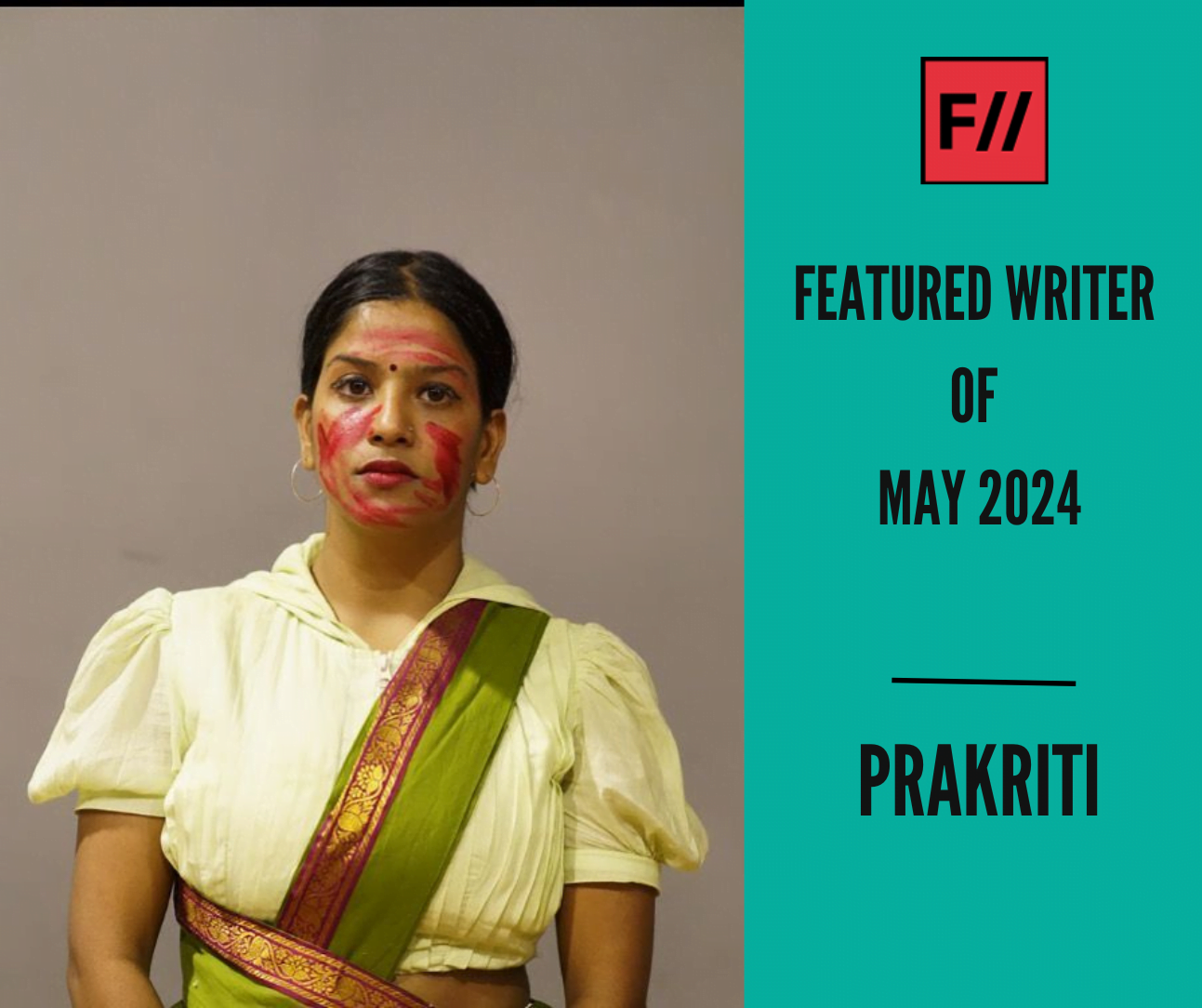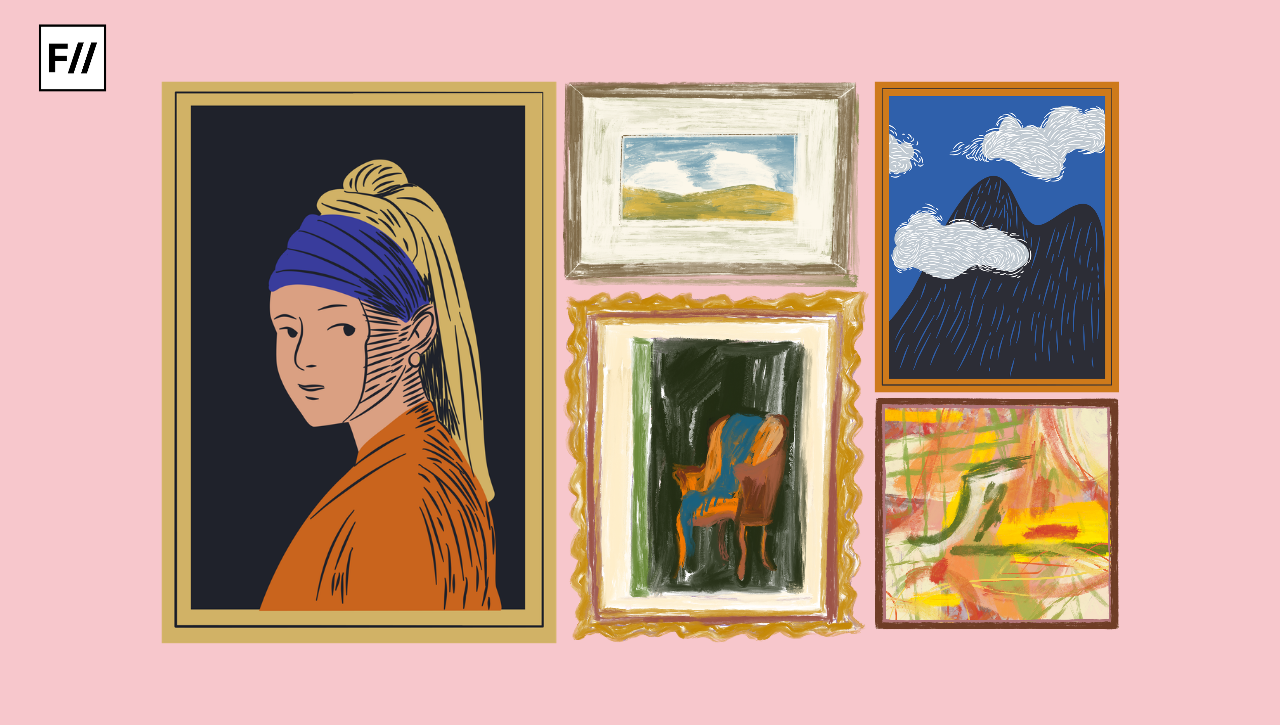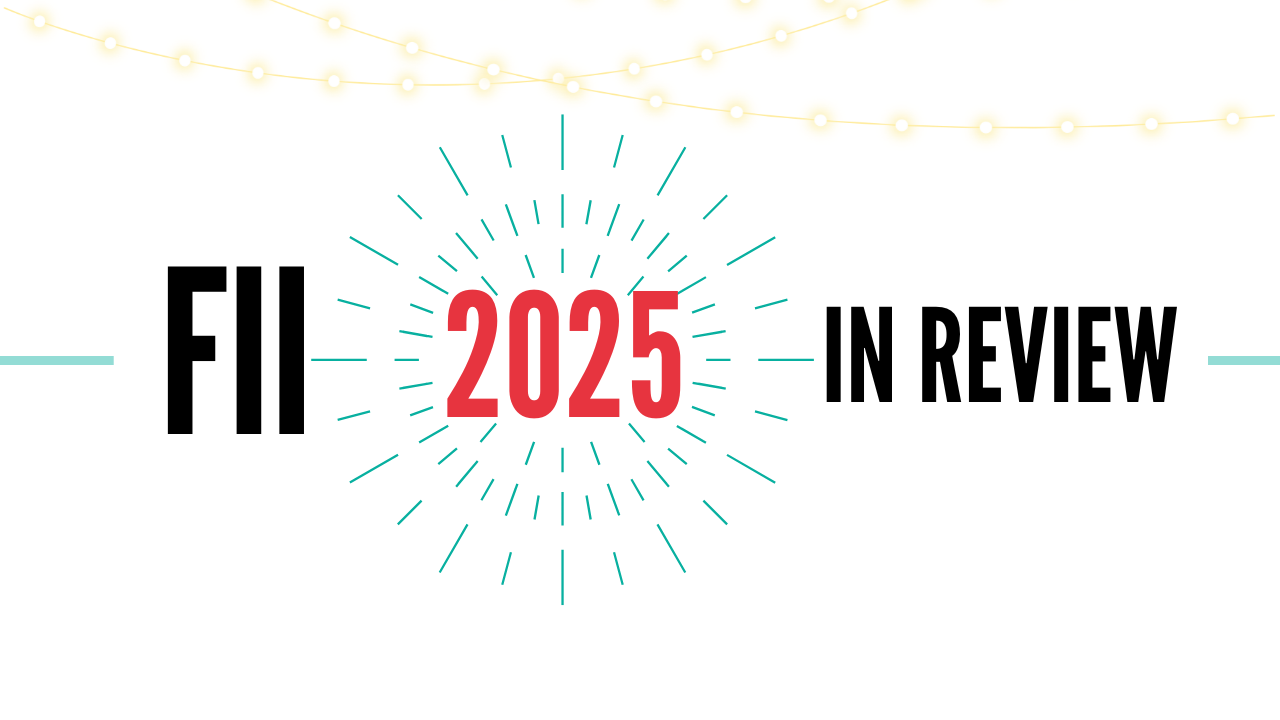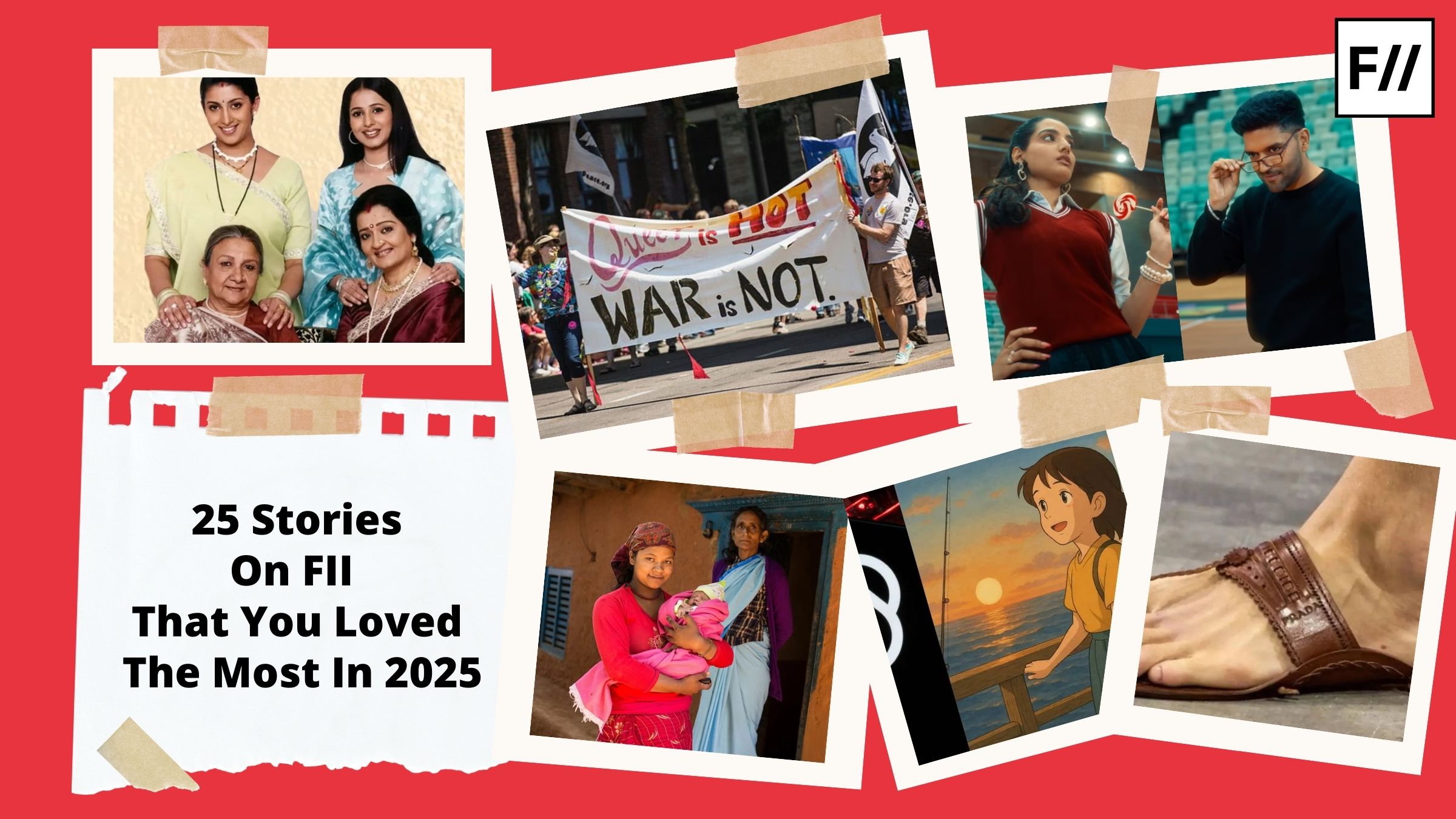We have been featuring the best writers from our writers’ community for their committed contribution to FII, making it what it is today. FII would not exist if not for the passionate and loyal feminist writers’ community that we have steadily been building over the last few years. This May, we feature Prakriti.
Prakriti is a contemporary dancer/performing artist/writer and former digital journalist.
Some of her popular articles include- How History Repeats Itself: From The Vietnam War To Ongoing Pro-Palestinian Protests, Decoding Health Conditions Of Women In War-Torn Gaza and Israel Takes Control Over Rafah: Lives Of 6,00,000 Children At Risk among others.
FII: Tell us a little about yourself and what you do.
I am a dancer, performer and part-time writer. My specializations include improvisation dance and political storytelling. They are the two most powerful tools for me in today’s world where free speech is under radar, even in the Arts sphere. I am currently working on multiple creative dance and writing projects, including my first solo physical theatre creation “Contaminated”, which is developing work on patriarchal hysteria, chastity, psychotic repercussions of war on women and domestic violence.
I am also working on a special dance (performing arts) project with seven beautiful friends – Sarah, Veena, Luci, Coco, Alice and Surekha (artists) from across the globe – India, Australia, Germany, Italy and New Zealand – that displays concepts of female rage and how women offer tenderness to each other amid dealing with deep-rooted anger in a patriarchal society. Additionally, writing has always supported my artistic education and acted as the first catalyst for my creative expression. Currently, I am working as a (part-time) associate researcher with two African-descent women on intersectional feminism.
FII: How did you become a part of the FII writer family?
To be honest, I have been stalking FII for years. One of my friends was associated with FII for years and I always wanted to work with the team. FII offers such a free and safe space to young, dynamic, intersectional communities to advocate on behalf of the marginalized. For years, I have been looking at the org.’s social media pages, but unfortunately, I never made it to their team. Nonetheless, one day I just decided I would send a pitch on a personal patriarchal story, and surprisingly I was accepted by the team. I think this happened last year in July. Since then, I have been writing for this org.
FII: How and when did you become a feminist?
I think it was at a tender age and the first memory perhaps would be being bullied at school for being “too masculine”, or wearing too “showy clothes” during my prepubescent years. In the later years, my understanding of feminism (academically) grew when I studied Literature as an undergraduate. I still remember my favourite books: A Room of One’s Own Book by Virginia Woolf, The Handmaid’s Tale by Margaret Atwood, to name a few.
I also never liked the fact that my “always angry” father made most decisions in the house, especially for me, because I was the naughty kid in the family. I shared a very love-and-hate relationship with him. Also, as I grew up, I started realizing I needed to take a stand for my mother and support her, and also learn to get rid of these dogmatic (career) aspirations he created for me (in his head). Nonetheless, I loved him. He was a caring father.
I also would like to say: I am not a feminist, I am a radical feminist and I say that with full conviction because I changed the culture in my house. I made my father understand that dreams and aspirations can be different and I don’t have to be scared to follow my path. He was liberal, but not a feminist, hence, I became one. Also, he taught me politics. I understood politics through him. However, the subjects are different. He was a staunch communist. I am a dance artist/activist/writer who likes to dwell deeper in a single and yet most profound “subject”: gender (women).
Also, I became a feminist for my hard-working mother. She is a feminist in her own way. However, we share a big generational gap, and I give her the benefit of the doubt. I became a feminist for my super-strong sister, (the reasons are personal).
Additionally, I became an intersectional feminist a year ago after I started working on this book, which is yet in its publishing stage, with two African-descent (American) women when they hired me as a part-time associate researcher for their book. The text has interviews of women of colour across the globe, mainly from the BIPOC community, who have done phenomenal work in reproductive health, abortion rights, LGBTQ rights, environmental justice, menstrual hygiene, feminist funding, to name a few, however, they failed to gain recognition because of power structures and white supremacy. It made me realise that I must take full responsibility for my privilege.
FII: Which issues within feminism are close to your heart?
To be honest it is everything. But most important to me is general notions of patriarchy and domestic/sexual violence. It is freaking triggering to accept that my country still does not consider marital rape a crime. India is growing at a phenomenal rate, however, I want to tell readers there are regions/villages/cities where scores of domestic violence cases go unreported.
Another issue that really frustrates me as a woman of colour is the lack of adequate healthcare facilities for the BIPOC community, for example, the lack of period hygiene in my country. I dream of building an Arts foundation/school, where I can educate young and middle-aged women of color about menstrual hygiene, their reproductive rights and legal advocacy against domestic abuse. Yes, that is my bigger cause, and I know it is possible to make that real. I am closely associated with really passionate artists who are also my friends, who believe in equality and safety for all. I know one day, with their support, my perseverance and my mother’s blessings, I will make a difference.
FII: What is your favourite piece on this site that you have written, and your favourite piece on this site that you have read? Why did they strike you?
My favourite article for FII by me is Decoding Health Conditions Of Women In War-Torn Gaza. This is my most researched piece. I will not say favourite, but this is something that triggers me the most: the mental and physcial health of women at an intersectional level.
My favourite piece by another writer on FII: Dear Straight People, Stop Teaching Me How To Be Queer. I am at a stage in my life where I am trying to understand if I am partially heterosexual or fully heterosexual. This article was very interesting for me to witness how straight people are always at the “top of the coin in terms of hierarchy” and give their “new queer” friends some very random pieces of advice that are partially obnoxious and passively stereotypical.
FII: What do you like to do when not writing about gender and social justice?
I aspire to become an electronic musician in the later years of my life. I spend a lot of time researching music and reading about my favourite musicians – Bob Dylan, Nina Simone, Jim Morrison (I like his music, but not his behaviour or relationship with women of his time). I love listening to versatile music. Music, rhythms and musicians inspire me the most.
In my free time, I also research texts/books that have an analytical feminist lens and try to articulate the readings in my artistic projects. Yes, I read a lot about politics, music and women. I also like to travel around the country with my boat headphones to unveil a sense of freedom in an unfair world. It takes me away from diabolical reality; sometimes it is okay to get rid of it. It is just me, music, nature and my playlist.
Also, in my free time, I enjoy cooking and spending valuable time with my very dear male friends: Satya, Purnendra and Rahul. I met them more than a year ago. They are very special to me because they made me believe not all men are the same. They are trying to break the patriarchal notions in their own beautiful way, they are very sensitive and sensible.
FII: What do you like about FII and our work?
The sharpness. The team does not take more than an hour to respond to a sensitive story. Overtly sensitive. I also really love how the org. believes in de-centralization, and every department has a proper team. And the best? IT PAYS ME ON TIME, and as a freelance writer and struggling artist, it is important to be paid on time for my well-researched story. I really appreciate that. Lastly, the freelance rates are also good. The org. really respects talented writers.
In my understanding, FII is a brilliant org. for comprehending intersectionality. The stories covered by them are extremely versatile: from enunciating the struggle of Kashmiri women to giving space to a queer woman to talk about identity politics. This is the power of new-age digitalism. FII, as digital org. brings brilliant ideas of sensitivity and embraces that oppression has no hierarchy.
FII: What more would you like to see from us?
Perhaps a department/platform that covers women in the performing arts sector, especially from the LGBTQ+ community. More video content may be with them.
Videos of “unpopular” women musicians from the 70s who failed to gain recognition because the world gave too much attention to The Beatles. They are/were great, but many women musicians deserve equal recognition.
FII thanks Prakriti for her timely and valuable contributions. We are incredibly grateful to have her as a part of our writers’ community and appreciate her for the deeply informative writing.
Photo costume credit: Vishwakiran Nambi Dance Company (VNDC), Bangalore.
About the author(s)
Feminism In India is an award-winning digital intersectional feminist media organisation to learn, educate and develop a feminist sensibility and unravel the F-word among the youth in India.




